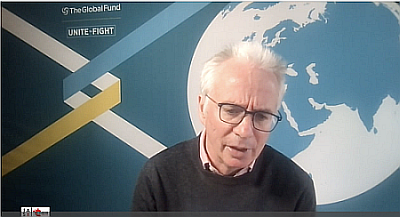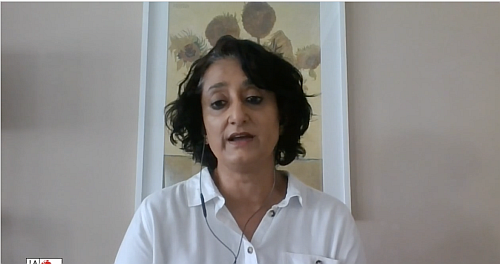KUALA LUMPUR, Feb 4 — The European Union’s (EU) Covid-19 vaccine export control is another form of vaccine nationalism, an international health activist said.
Health Justice Initiative South Africa founder Fatima Hassan described the EU restrictions as an “export ban”, a term that the EU has denied as the bloc described its vaccine export regime as an “export transparency mechanism”.
“Unfortunately, the EU has responded with an export ban, which includes, for example, South Africa on the export ban. Now, that may have been an error and that error needs to be remedied immediately,” Fatima told a Covid-19 conference by the International AIDS Society (IAS) during her session on ensuring equitable access or financing to address Covid-19 (diagnostics, therapeutics, personal protective equipment, and vaccines).
The EU has implemented tighter restrictions, initially scheduled until March 31, on the export of Covid-19 vaccines produced in the bloc, requiring vaccine developers to get approval from the European Commission before supplying doses outside the EU.
Malaysia is not exempt from the export controls, though Putrajaya has assured Malaysians that shipments of a million doses of the Pfizer-BioNTech vaccine will arrive as scheduled by next month.
Fatima said how in her country besides the Covid-19 outbreak, people are also suffering from hunger and loss of jobs. She cited reports that said only by 2023, poorer nations will get widespread access to Covid-19 vaccines.
During the panel discussion, Fatima highlighted how there’s a lack of transparency in the global COVAX mechanism, EU Covid-19 vaccine pricing deals, as well as deals by the United Kingdom and the United States. She said that these mechanisms are actually relying on public funding and should be transparent.
“It also potentially undermines democratic institutions for example even in my country, because how does the Parliament of South Africa have an oversight of COVAX.”
Fatima pleaded for a correction on these issues as she said no one is going to be saved in the whole world unless everyone gets vaccinated in a widespread manner.
In Malaysia, although the government has signed non-disclosure agreements with individual pharmaceutical companies for Covid-19 vaccines, Science, Technology, and Innovation Minister Khairy Jamaluddin and Health Minister Dr Adham Baba had presented their vaccine procurement deals with the Parliament’s Public Accounts Committee, who said they were satisfied with the procurement.
Meanwhile, Seth Berkley from Gavi, the Vaccine Alliance, echoed Fatima’s response on vaccine nationalism as he said that vaccine nationalism is not a healthy activity.
“I share the passion and I completely agree with the last point [that] we need to now be dealing with the new variants and thinking about that the whole world is not safe until everyone is safe,” Berkley said.
He said that Gavi is trying to get as many coronavirus-related products as possible, including diagnostic tests, personal protective equipment (PPE), and therapeutics to ensure equitable global access.
Lack Of Community Engagement In Covid-19 Response

During the same panel discussion, Peter Sands from the Global Fund, Switzerland, highlighted that there was a huge lack of civil society engagement in the Covid-19 response in individual countries.
“Most countries, Covid responses have been talked down and haven’t had such effective community engagement,” Sands said.
“We need to find better ways in mobilising the community because we know we can only beat this formidable pathogen with a combination of the best science and community engagement and leadership.”
During a separate panel discussion on stigma or harm reduction and Covid-19, Julia Marcus from Harvard Medical School said that messaging and policies with regards to Covid-19 have to be more compassionate.
“We take one example, (a) mask. Some of the early messaging, you know, there was a lot of like ‘you are a selfish bad person if you don’t wear a mask’,” Marcus said, while pointing out that these messages were even coming from health care workers and elected officials.
She said what would be more compassionate is messages that include how even elected officials don’t want to wear a mask, but have to wear it for the safety of the rest.
“One thing that I will ask in public health messaging and policy during the Covid pandemic, will be more empathy because empathy I think can guide both messaging that builds trust, and can also guide interventions.”
“So, when we think about what is that people need around mass distancing or ability to quarantine and isolate and we come from a place of empathy, it might occur to us that we need to actually send good masks to people, it might occur to us that we need to make isolations as easy as possible and these policies that follow on, really putting ourselves in people shoes and thinking about what is it that they need, makes it easy,” Marcus said.
However, Marcus said with vaccines, it is more complex and there will be various uncertainties surrounding vaccines, such as individuals’ behaviour towards vaccines and ethics that should all be publicly discussed and addressed.








